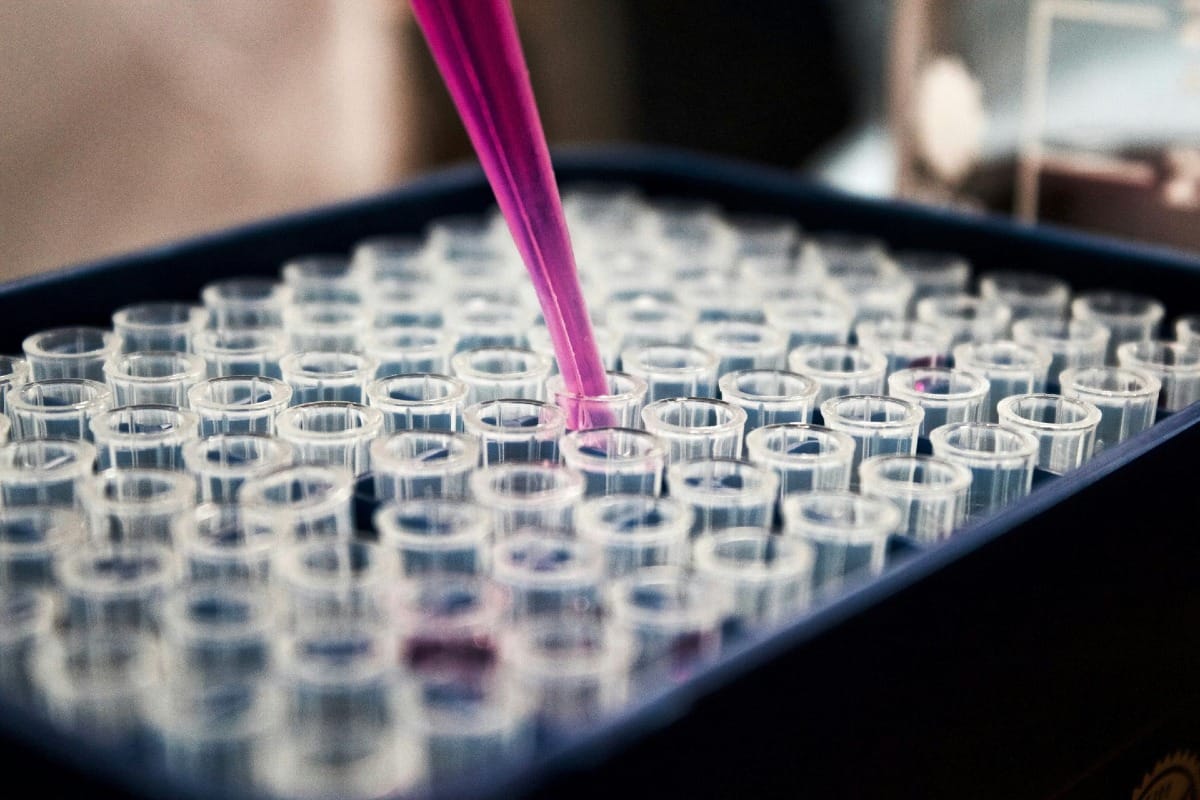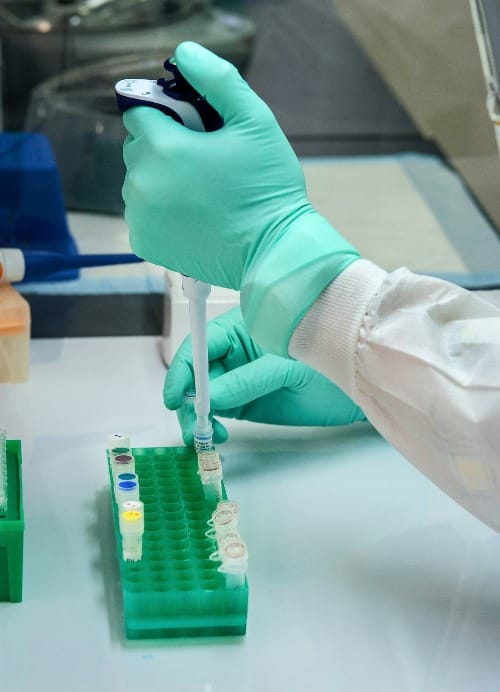In the ever-evolving field of longevity research, a groundbreaking development has captured the attention of scientists and health enthusiasts alike. Rapamycin, a drug originally developed as an immunosuppressant, has shown remarkable potential in extending lifespan and improving overall health. This article delves into the latest findings, expert opinions, and the implications of this anti-aging breakthrough.
Understanding Rapamycin
Rapamycin, also known as sirolimus, is a compound first discovered in the soil of Easter Island, or Rapa Nui, hence its name. Initially identified for its antifungal properties, rapamycin quickly gained prominence in the medical field for its immunosuppressive effects, making it valuable in preventing organ rejection after transplants[1].
Chemical Structure and Mechanism
Rapamycin is a macrolide compound that works by inhibiting the mTOR (mechanistic target of rapamycin) pathway. The mTOR pathway plays a crucial role in regulating cell growth, proliferation, and metabolism. By modulating this pathway, rapamycin influences various cellular processes that are integral to aging and age-related diseases[1].
Historical Use in Medicine
Before its potential as an anti-aging drug was recognized, rapamycin was primarily used in transplant medicine. Its ability to suppress the immune system made it an effective tool in preventing organ rejection. Over time, researchers began to notice additional benefits that extended beyond its immunosuppressive properties, leading to further investigations into its potential applications.
The Anti-Aging Breakthrough
Recent studies have shed light on rapamycin's remarkable potential to extend lifespan and improve overall health. This section explores the key findings that have propelled rapamycin to the forefront of anti-aging research.
Lifespan Extension in Animal Models
Numerous studies conducted on various animal models, including mice, fruit flies, and nematodes, have demonstrated significant increases in lifespan when treated with rapamycin. In some cases, the lifespan extension was as high as 60%, a remarkable achievement in the field of longevity research[1].
Improved Health Span
Beyond merely extending lifespan, rapamycin has shown promise in improving the overall quality of life during the extended years. Researchers have observed improvements in cognitive function, cardiovascular health, and metabolic processes in animal models treated with rapamycin[1].
Cellular Rejuvenation
One of the most intriguing aspects of rapamycin's effects is its ability to promote cellular rejuvenation. By modulating the mTOR pathway, rapamycin appears to enhance cellular repair mechanisms, reduce the accumulation of damaged proteins, and improve mitochondrial function – all key factors in the aging process[1].
Expert Insights on Rapamycin's Potential
Leading researchers in the field of aging and longevity have expressed optimism about rapamycin's potential as an anti-aging intervention. Their insights provide valuable context for understanding the significance of this breakthrough.
Dr. David Sinclair's Perspective
Dr. David Sinclair, a renowned expert in the field of aging research from Harvard Medical School, has been vocal about rapamycin's promise. He emphasizes the drug's ability to target multiple hallmarks of aging simultaneously, making it a potentially powerful tool in the fight against age-related decline[1].
Challenges and Considerations
While the potential of rapamycin is exciting, experts also caution about the need for further research, particularly in human subjects. The long-term effects of rapamycin use in healthy individuals are not yet fully understood, and careful consideration must be given to potential side effects and optimal dosing strategies.
Mechanisms of Action
Understanding how rapamycin works at the cellular level is crucial for appreciating its potential as an anti-aging intervention. This section explores the key mechanisms through which rapamycin exerts its effects on aging processes.
mTOR Inhibition
The primary mechanism of action for rapamycin is the inhibition of the mTOR pathway. mTOR is a protein kinase that acts as a central regulator of cell metabolism, growth, and proliferation. By inhibiting mTOR, rapamycin influences various cellular processes that are implicated in aging[1].
Autophagy Enhancement
One of the significant effects of mTOR inhibition is the enhancement of autophagy, a cellular process that involves the breakdown and recycling of cellular components. Increased autophagy helps clear out damaged proteins and organelles, effectively "cleaning up" cells and potentially slowing the aging process[1].
Mitochondrial Function
Rapamycin has been shown to improve mitochondrial function, which is crucial for cellular energy production. As mitochondrial dysfunction is a hallmark of aging, this improvement could contribute significantly to the anti-aging effects of rapamycin[1].
Stem Cell Maintenance
Another important aspect of rapamycin's action is its role in maintaining stem cell populations. By modulating stem cell function, rapamycin may help preserve the body's capacity for tissue repair and regeneration, which typically declines with age[1].
Potential Applications in Age-Related Diseases
The anti-aging effects of rapamycin extend beyond general longevity and may have specific applications in the prevention and treatment of age-related diseases. This section explores some of the potential therapeutic applications of rapamycin.
Neurodegenerative Disorders
Research has shown promising results in the use of rapamycin for neurodegenerative disorders such as Alzheimer's and Parkinson's disease. The drug's ability to enhance autophagy and reduce protein aggregation may help slow the progression of these conditions[1].
Cardiovascular Health
Rapamycin has demonstrated potential benefits for cardiovascular health, including improved heart function and reduced risk of atherosclerosis. These effects could be particularly valuable in preventing age-related cardiovascular diseases[1].
Metabolic Disorders
Studies have suggested that rapamycin may have beneficial effects on metabolic health, potentially aiding in the prevention and management of conditions such as type 2 diabetes and obesity[1].
Cancer Prevention
While more research is needed, some studies have indicated that rapamycin may have cancer-preventive properties. Its ability to regulate cell growth and proliferation could potentially inhibit the development of certain types of tumors[1].
Current Research and Clinical Trials
The promising results observed in animal studies have led to increased interest in exploring rapamycin's potential in human subjects. This section provides an overview of ongoing research and clinical trials involving rapamycin as an anti-aging intervention.
Human Trials
Several clinical trials are currently underway to assess the safety and efficacy of rapamycin in healthy adults. These studies aim to determine optimal dosing strategies, evaluate potential side effects, and measure biomarkers of aging and age-related diseases[1].
Combination Therapies
Researchers are also exploring the potential of combining rapamycin with other interventions, such as exercise or dietary modifications, to enhance its anti-aging effects. These combination approaches may provide synergistic benefits in promoting longevity and health span[1].
Biomarker Studies
A significant focus of current research is the identification and validation of biomarkers that can accurately measure the effects of rapamycin on aging processes. These biomarkers will be crucial for assessing the drug's efficacy in future clinical trials and potential therapeutic applications[1].
Challenges and Considerations
While the potential of rapamycin as an anti-aging intervention is exciting, there are several challenges and considerations that need to be addressed before it can be widely adopted. This section explores some of the key issues that researchers and clinicians must grapple with.
Side Effects and Safety Concerns
As with any medication, rapamycin has potential side effects that need to be carefully considered. These may include immunosuppression, metabolic changes, and other systemic effects. Long-term studies in healthy individuals are needed to fully understand the risk-benefit profile of rapamycin as an anti-aging intervention[1].
Dosing and Administration
Determining the optimal dosing regimen for rapamycin as an anti-aging treatment is a critical challenge. The dose required for anti-aging effects may differ from that used in its current medical applications, and finding the right balance between efficacy and safety is crucial[1].
Regulatory Hurdles
The path to approval for rapamycin as an anti-aging treatment faces significant regulatory challenges. Aging itself is not currently recognized as a disease by regulatory bodies, which complicates the process of gaining approval for interventions aimed at extending lifespan and health span[1].
Future Directions and Implications
The potential of rapamycin as an anti-aging intervention opens up exciting possibilities for the future of healthcare and longevity research. This section explores some of the potential implications and future directions of this groundbreaking research.
Personalized Anti-Aging Therapies
As our understanding of rapamycin's effects on aging processes grows, there is potential for developing personalized anti-aging therapies tailored to individual genetic profiles and health status. This could lead to more effective and targeted interventions for extending health span[1].
Economic and Societal Impact
The development of effective anti-aging interventions like rapamycin could have far-reaching economic and societal implications. Extended health spans could lead to changes in retirement age, healthcare systems, and overall quality of life for aging populations[1].
Ethical Considerations
The prospect of significantly extending human lifespan raises important ethical questions that society will need to grapple with. These include issues of access and equity, the potential for exacerbating existing inequalities, and the broader implications of altering the human lifespan[1].
Conclusion
The emerging research on rapamycin's potential as an anti-aging intervention represents a significant breakthrough in the field of longevity science. While much work remains to be done to fully understand and harness its benefits, the promise of rapamycin opens up exciting possibilities for extending human health span and combating age-related diseases.
As research progresses, it will be crucial to carefully balance the potential benefits of rapamycin with considerations of safety, efficacy, and ethical implications. The journey towards unlocking the secrets of aging continues, and rapamycin may well prove to be a key that opens new doors in our quest for healthier, longer lives.
Citations:
[1] https://news.northeastern.edu/2024/07/31/rapamycin-anti-aging-breakthrough/















Member discussion